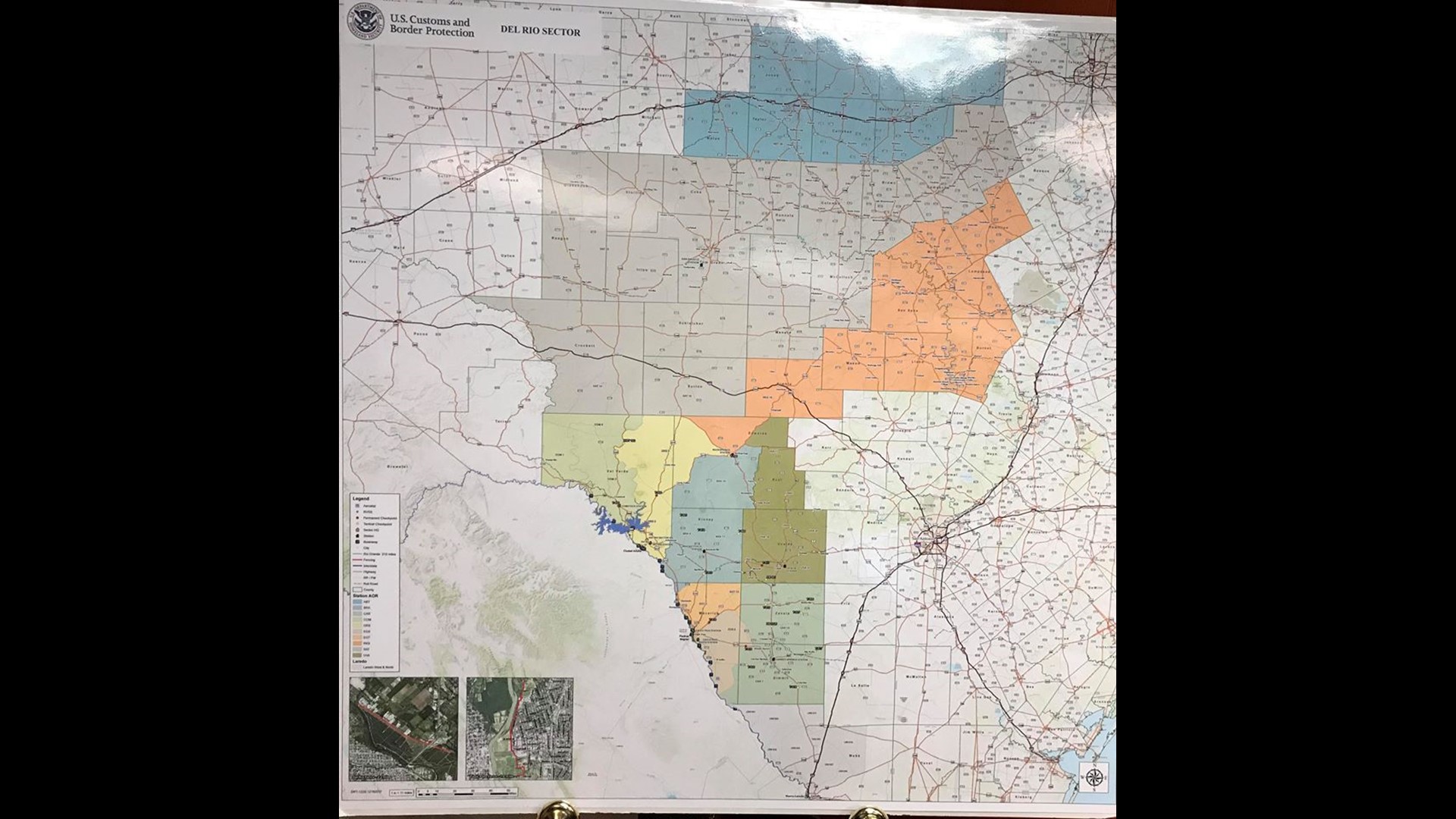DEL RIO, Texas — "It can be anybody. We typically do see that probably more prevalent with young women and children, but it is something that can be across the board,” Acting Chief Patrol Agent Matthew Hudak said.
He says Border Patrol agents encounter human trafficking cases regularly in the Del Rio sector.
"Sex workers, indentured workers, things like that where they are not free to get out of that situation, they're not free to leave,” Hudak said.
Human trafficking, often called modern day slavery, has many forms. From sex workers to laborers to child soldiers. Many times, the smuggler, or “coyote,” who was paid to protect that person and get them across the border Is the one who ends up hurting them.
"They've added on exorbitant smuggling fees that now they need to work off, or even so much as threats against family members that if you don't stay and work for us and give us x percentage of your pay then there will be consequences for your family. And all of it is extremely dangerous. It goes against our values here in this county and I don't think most of those folks got themselves into that knowingly,” Hudak said.
The Del Rio sector covers 41 counties, including dozens in West Central Texas. Agent Hudak says even though people may live hours from the border itself, that doesn't mean they won't see it....it just may look a little different.
"Maybe not the smuggling attempts themselves taking place but running across victims of human trafficking,” Hudak said.
But some of the tell-tale signs will look the same.
"Usually be surrounded by the same people. You'll encounter other people either speaking on their behalf or conducting business for them. Really trying to keep them out of that public eye, out of interacting with other people. They're not allowed to have money or do things themselves,” Hudak said.
Chief Hudak says no matter what the circumstance, predators should be brought to justice and victims are just that; victims.
"They did involve themselves in the criminal act of crossing the border but that doesn't mean that they should continuously be victims of human traffickers,” Hudak said.
With the final of the four bills signed into law, the Department of State says, "Federal agencies are well-poised to both improve and expand their work. Modern slavery simply has no place in the world."

